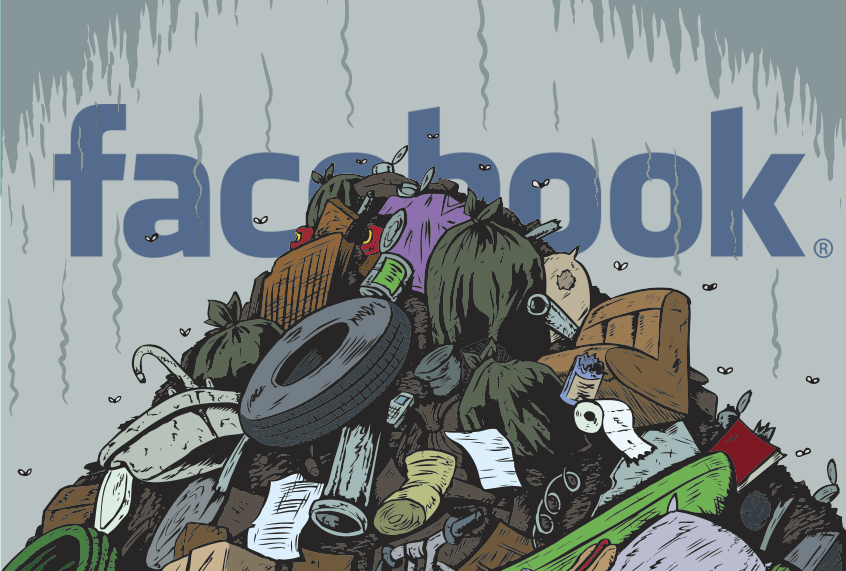On Monday, Facebook announced it would decline to run Donald Trump’s racist, anti-immigration ad on its platform.
“This ad violates Facebook’s advertising policy against sensational content so we are rejecting it,” Facebook said in a statement. “While the video is allowed to be posted on Facebook, it cannot receive paid distribution.”
Right-leaning Fox News and Fox Business, generally friends of the administration, pulled the ad too. The ad in question, which was released last week, depicted migrants approaching the southern border as criminals and villains.
This marked one of many press announcements and updates Facebook has made over the last several months as part of its ongoing efforts to prevent another debacle comparable to what happened in 2016, when a Russia-linked group ran misleading Facebook ads targeting American voters in an attempt to sow disinformation and balkanize the American electorate.
Since the 2016 U.S. presidential election, Facebook has been under a microscope for the role it plays in elections. Despite corporate vows and measures to self-regulate and prevent bad actors from swaying another election by spewing false information, a new paper raises major red flags in regards to the scale of the problem and how far it is from being fixed. In other words, two years later, the situation hasn’t improved.
Jonathan Albright, of the Tow Center for Digital Journalism, timed his three-month research project to coincide with tomorrow’s midterm election. His analysis, as he explains on Medium, does not seek to answer “why” this is happening, but “what.”
“After this undertaking, one impression that’s been gleaned is that it’s the scale of the problems, not the sum of the problems, that represents the greatest threat,” Albright explained. “The issues I’ve found on Facebook the past few months — through large-scale analytics, content analysis, extensive political ad archive querying, and upon the close inspection of thousands of posts and information-sharing activities — involve patterns that have been on the radar of the company’s leadership and American politicians since the last election.”
Albright’s work corroborates other studies’ findings, including one from Media Matters.
Albright analyzed one thousand screenshots and collected more than 250,000 posts and 5,000 political ads. He divides the paper into three sections based on the three biggest problems he found through the research. The first is what he refers to as “Recursive Ad-ccountability.” The second challenge Albright identified is “shadow organizing,” meaning the act of manipulating with the help of Facebook Groups. The third challenge is “granular enforcement,” which “focuses on the company’s challenges in enforcing its rules and terms of service.”
“On a number of occasions, I found influential Facebook Pages, including the verified Pages of publishers and political funding groups being managed by accounts based outside the United States,” he wrote. “To clarify, these don’t just involve politically-themed Pages with foreign managers, something that Buzzfeed found and reported on in May, but a much more concerning scenario: influential Pages with foreign “manager” accounts that have been running extensive political ad campaigns on Facebook, targeting users in the United States over the past six months.”
The examples he highlights reveal “structural loopholes” in Facebook’s political ad disclosure system, according to Albright.
“The larger problem, however, which I’m calling ‘recursive ad-countability; for lack of a better word, emphasize the fact that Facebook does not appear to have a rigid protocol in place to regularly monitor Pages running political campaigns after the initial verification takes place,” he states.
His analysis also found that some influential Pages, with foreign manager accounts, have lacked a “paid for” label for up to four months.
Recall in May, Facebook made a big announcement that it would label its political ads.
“Starting today, all election-related and issue ads on Facebook and Instagram in the U.S. must be clearly labeled – including a ‘Paid for by’ disclosure from the advertiser at the top of the ad,” said Rob Leathern, Director of Product Management at Facebook. “This will help ensure that you can see who is paying for the ad – which is especially important when the Page name doesn’t match the name of the company or person funding the ad.”
So, what are we to make of this?
“The historical inconsistencies in reporting and the lack of rigidity in its verification process are gaps that arguably render the company’s political ad transparency effort ineffective,” Albright wrote.
Meanwhile, Facebook will continue to write press releases for every big ad it takes down from its platform.


